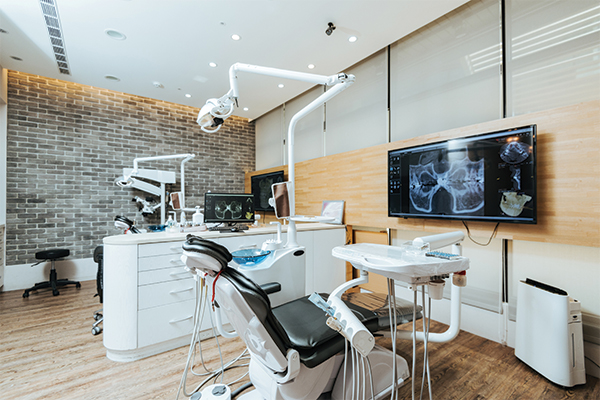Understanding the gravity of HIPAA compliance is crucial for dental practices to avoid costly fines and protect patient privacy. The Health Insurance Portability and Accountability Act (HIPAA) sets the standard for safeguarding sensitive patient information, but despite clear guidelines, many dental offices fall prey to common pitfalls.
Pact-One + SecureLabs – HIPAA Compliance Services for Dental Practices
4 Facts About HIPAA and Your Dental IT

Health Insurance Portability and Accountability Act (HIPAA) regulations about IT have become much clearer over the course of the past few years, but there are still a few areas in which your office might not be compliant. This isn’t necessarily because of negligence on your part, but rather a lack of understanding of the requirements.
Properly Securing Your Patients’ Protected Health Information

As a dental professional, protecting your patients’ protected health information (PHI) is paramount. Unfortunately, cybercriminals are always looking for new ways to access this information. As the custodian of sensitive data, you must take steps to ensure that your dental practice’s network security is up-to-date and in compliance with regulations.
Keeping Your Network Secure
The Importance of Email Encryption for Dental Practices

Cybercriminals have many opportunities to intercept confidential data. But if your data is encrypted, it’s much more difficult for your data to be compromised – should a cybercriminal succeed in getting their hands on it.
As with any other healthcare provider, dental practices must comply with HIPAA and HITECH legislation – requiring that all communications be encrypted.
Data Privacy 101: A Guide for Your Dental Clinic

Dental clinics handle a large amount of patient data known as protected health information (PHI). PHI is private information in medical records that is used to identify a specific individual, and is disclosed during a patient's diagnosis or treatment. This includes:
Address
Date of birth
Phone number
Email address
Social Security number
Medical history
Mental health condition
Laboratory tests and results
Insurance information
As a dental health provider, it’s your responsibility to ensure your patients’ information is safe and handled properly.
Is Your Dental Office HIPAA-Compliant?

If you own or are planning to start a dental practice, you have to make sure that it follows the strict standards of the Health Insurance Portability and Accountability Act (HIPAA). This act requires small- and large-scale dental clinics to take precautionary measures to ensure the safety and security of their patients' protected health information (PHI).
The U.S. Department of Health and Human Services (HHS), the governing body that enforces HIPAA, can impose a fine of $50,000 per patient record that was stolen or compromised, and a maximum fine of $1.5 million per year depending on the type of violation.




